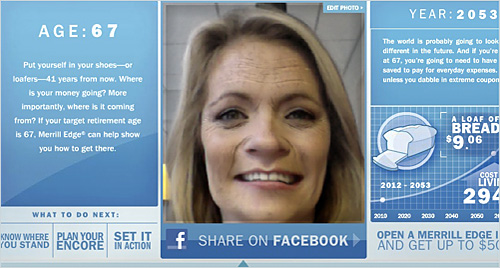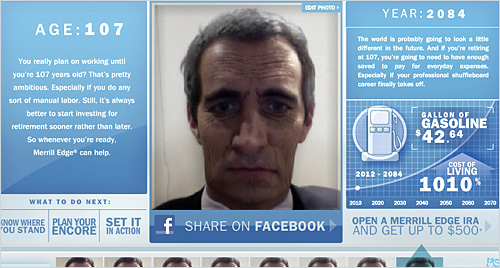Science seems to support that idea. Two researchers at Stanford University found in a study last year that participants who were introduced to their "future self" were more likely to save for retirement. And those who interacted with a happier version of that future self stashed away even more.
In thinking of retirement, people seem to want themselves to be happy. That's probably the biggest reason why, when we tested the product on a random sample of Tri-State residents, they found the results of their own aging unsettling.
"I look like the scary witch from 'Hansel & Gretel,'" said marketing exec Jina Myers, 30, who said she has a "little" saved for retirement. In response to his decades-older digital alter ego, Richard Cording, 59, asked his wife if she wanted to stay married to him. The majority of respondents suggested they should be saving simultaneously for plastic surgery.
Some retirement experts argue against such fear-mongering. "Today's boomer really needs a message of optimism and hope," said Frank Troise, founder of FreeRetirementReport.com. "I'm not certain that a stark financial and physical picture is exactly what they need in order to compel them to action." (Read More: New Retirement Calculus Gives New Life to Tricky Annuities)
According to McKinsey & Company, two-thirds of early baby boomers will find they haven't saved enough to maintain their standard of living once they retire. Many Americans must work longer to combat that, if they can.








